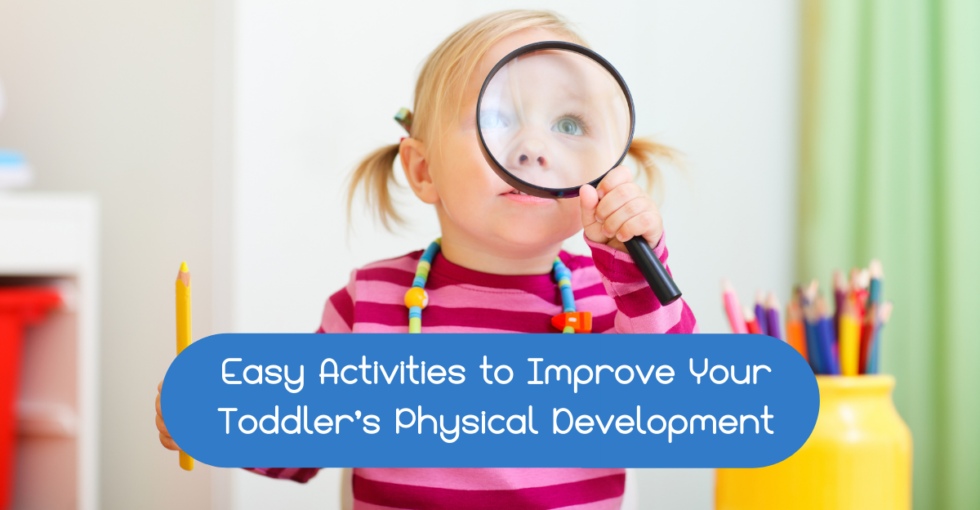The benefits of yoga are widely known and proven repeatedly in improving a person’s physical and mental well-being. A plethora of research is available describing various ways in which yoga can make our lives better. Recently, there has been a growing focus on yoga for children, especially in early education settings. Let us explore the benefits of yoga in early childhood.
Breathing relating to Self-Regulation
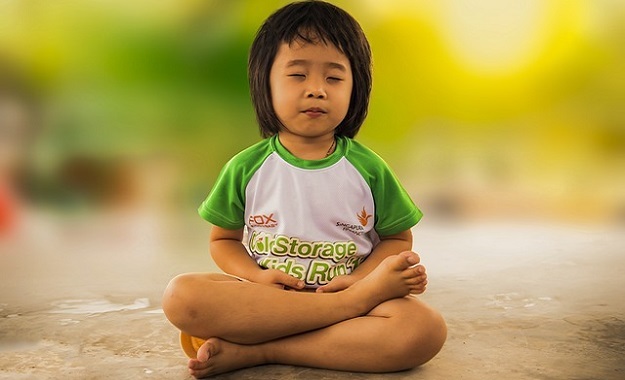
Self-regulation is the ability of a person to understand and manage their behavior, thought, and emotions. It is a crucial milestone in early childhood development and plays a significant role in developing emotional intelligence, school readiness, and educational success. Research has shown that yoga has a significant effect on a child’s ability to self-regulate. Breathing is an essential component of yoga that teaches the child to be mindful of their body. Regular yoga practice helps to identify and navigate stressful circumstances at school, with caregivers, or amongst peers by applying the yoga techniques to overcome frustration and attain emotional stability.
Boosts Attentiveness
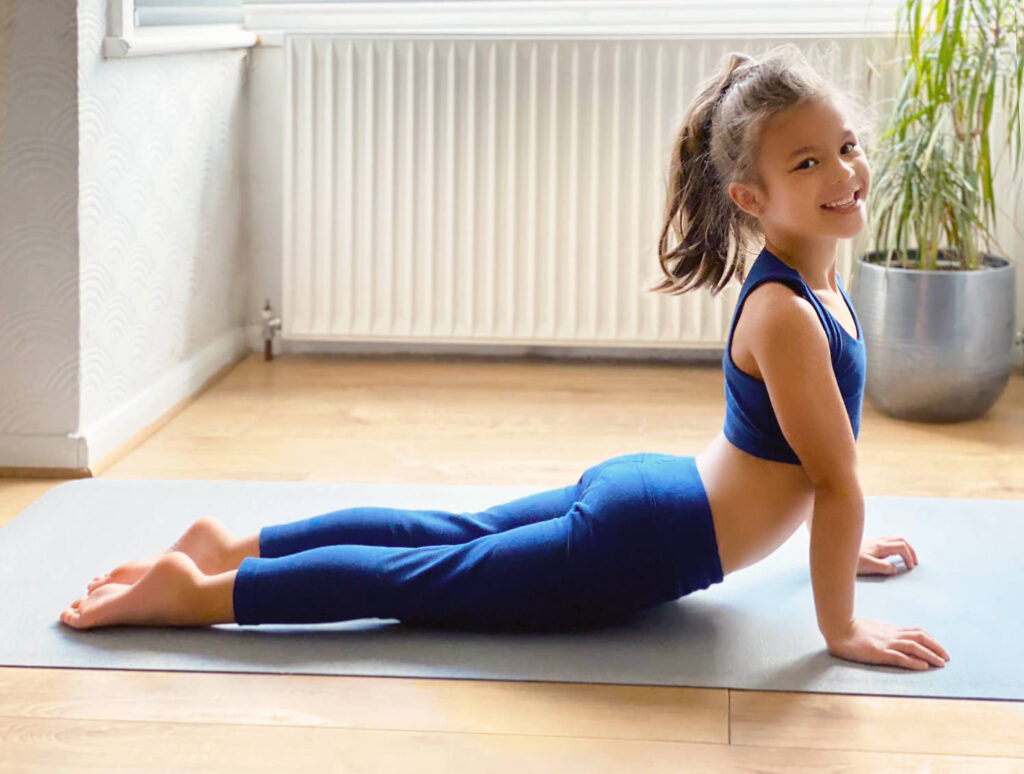
Experts agree that inattentiveness is a continuum, with the problem ranging from mild to severe, which can be diagnosed as Attention Deficit Hyperactivity Disorder – Inattentive Type (ADHD). Whether a child is diagnosed with ADHD or not, they need to acquire the skills to tackle inattention issues, including the inability to follow directions, failing to finish tasks, easily distracted, thus affecting academic performance. Many school programs were developed to include yoga as a strategy to improve focus.
The benefit of yoga for students is observed through children’s ability to concentrate in the classroom utilizing breathing and concentration. Beyond academic performance, it can help in managing competing demands that children face daily.
Improves Cognitive Functioning

Memory, problem-solving, reasoning, and decision-making are a part of cognitive functioning, an essential element of childhood development. Several studies have shown that yoga plays a vital role in improving the cognitive functions mentioned above. The practice of yoga requires a focus on the mind and body, coordinating movement and breathing. This can be translated into real-world situations enhancing these cognitive functions. It improved the ability to remain calm, regulate emotions and focus on the task at hand. Studies have shown a cost-effective benefit of introducing yoga for pre-schoolers when addressing cognitive and behavioral functioning.
Reduces Stress and Anxiety
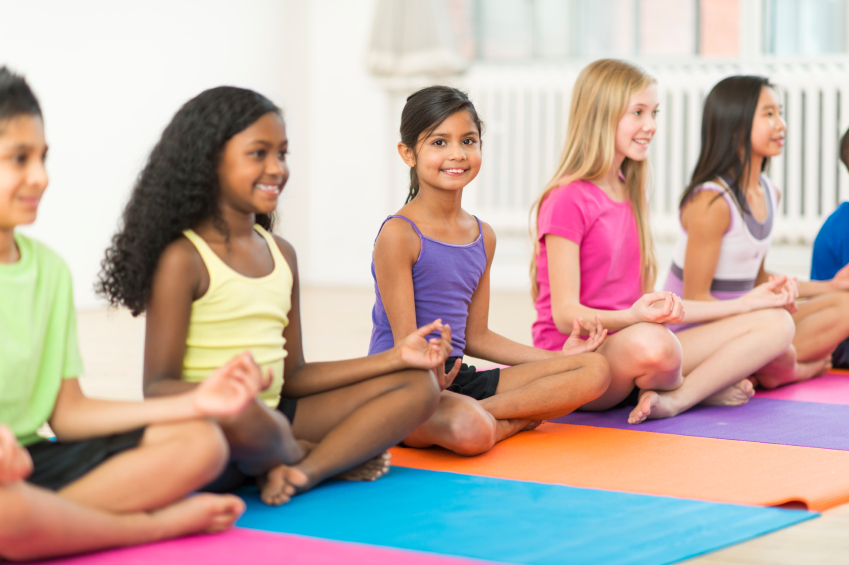
It is very well known that yoga reduces stress amongst adults, but the same can be said for young kids. Irrespective of children’s circumstances, they face numerous obstacles, whether familial or peer pressure, their socio-economic reality, or academics. They must become aware of their triggers to cope in situations of stress, anxiety, or trauma. The benefit of yoga in early childhood will enable them to manage their emotions healthily. Yoga teaches one to manage stress through body control and breathing techniques, improving focus and mental strength. It helps to relieve stress that is unconsciously built up in the body.
Physical Development

Sports and play are essential to avoid a sedentary lifestyle that can result in obesity or a host of problems leaving a long-lasting impact on the body and mind. Yoga can be added to a list of activities that children can do to overcome such problems. One advantage of yoga is that it can be performed alone or in a small group in a fun, non-competitive manner making it an interactive and engaging activity for all children. It builds balance, stretches and strengthens muscles, and increases flexibility. It also builds spatial and body awareness through controlled movements of yoga poses. Some of the best yoga poses for kids are cat-and-cow, bridge, mountain, and warrior poses.
Sleep Better

According to the Centers for Disease Control and Prevention (CDC), toddlers require 11 to 14 hours of sleep and preschoolers 10 to 13 hours. We know sleep is an integral part of childhood development, both physically and mentally. Sleep has a direct impact on improving mood, resilience, happiness, cognitive performance, and so much more. A study addressing issues relating to sleep amongst pre-school-age children claims that nearly a quarter of parents with children under five years report problems in sleeping. Yoga can offer a solution for these parents struggling to put their children to sleep as it is known to reduce stress and regulate emotions. Children with Autism Spectrum Disorder often have sleep disorders. It is found that yoga lessens stress and improves mental health, which subsequently helps with sleeping difficulties.
Facilitates Early Childhood Education
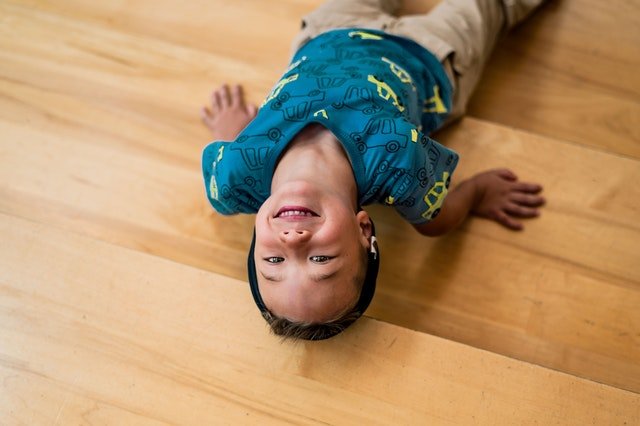
Early childhood education is imperative for all children, and its importance cannot be understated. It shapes a child’s foundational development from cognitive functioning to social behaviors. These institutes deal with issues of coping and inattention, encourage independence, confidence and self-esteem, academic preparedness, and creating social capabilities to build up the children for the future. Yoga is an excellent tool that educators and parents can use to manage their children’s growth through childhood to adolescence effectively.
Sharp Minds Academy is an example of an early education institute that aims to provide the best environment for your children to thrive and grow with programs for pre-school and children with learning differences.

